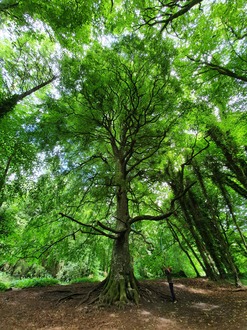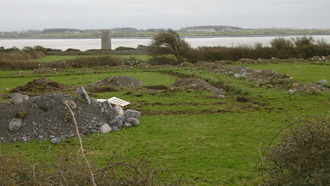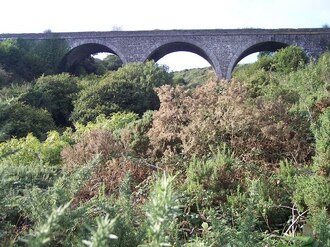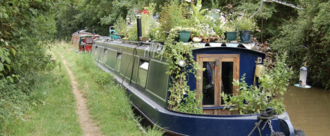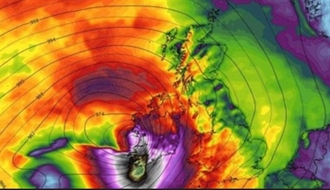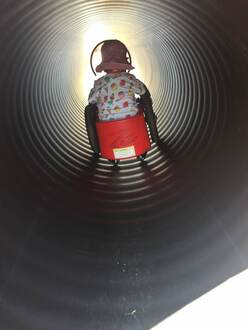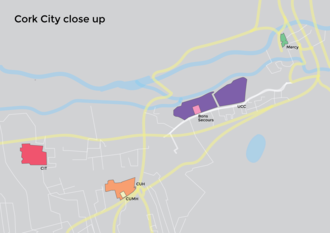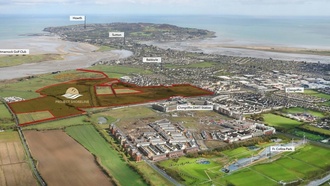- Featured
- Animal Rights
- Anti-racism
- Arts & Culture
- Children
- Climate
- Corporate accountability
- Crime
- Disability rights
- Economic
- Education
- Environment
- Food and Sustainable Production
- Gender Equality
- Governance and Transparency
- Health
- Housing
- LGBT Rights
- Mental health
- Northern Ireland
- Planning
- Privacy and Data Protection
- Rural Inequality
- Social Justice
- Trade
- Transport and Infrastructure
- Workers' Rights
- More
-
Save Waterford's Municipal Golf CourseThis is the only publicly owned Golf Course in the South East and is much used. A change of use would take from the public an amenity that is valuable for low cost both for the council to provide and players to use. If anything sports facilities should be further developed for users of all ages.855 of 1,000 SignaturesCreated by Una Dunphy
-
Reopen gates in Phoenix ParkUpdate: OPW have released this. All gates bar Knockmaroon open from Friday July 10th. Knockmaroon will open when works completed. Truly hope lessons can be learned from this and all stakeholders are considered in future planning. Thank you all for your support!! https://m.facebook.com/story.php?story_fbid=3500180506661143&id=132971523382075&anchor_composer=false Phoenix Park is a worldclass amenity to the people who live nearby, on day trips, and tourists alike. The decision to only have 2 gates open to vehicular traffic is seriously restricting access to the park. Traffic volumes are increasing now that we are coming out of lockdown. Congestion in the surrounding areas is already a huge issue. This will only increase with these access routes cut off without an alternative solution. It can now take up to an hour to get from one end of the park to the other ; particularly at weekends with increased demand for the Zoo, Farmleigh and the Visitor Centre. Engine emissions from cars sitting on Chesterfield Avenue must surely be offsetting any potential environmental gain. Parts of the Park will become no go areas due to their isolation. There are no plans for an increased OPW presence with the gate closures. This decision seems to have been rushed through with little forward thinking and engagement with local communities. Give the park back to the people and then work on alternatives to reduce car traffic.1,652 of 2,000 SignaturesCreated by Alison Reynolds
-
Outdoor Education as a COVID solutionAs children return to school in Ireland, the risk of a second wave of COVID will grow. Most schooling means spending long hours, indoors, in close contact but it doesn't have to be that way. A way to minimise this risk, whilst benefiting from nature, is to teach outdoors as much as possible. This has already been done in previous pandemics and is now being tried in Denmark, USA and UK amongst other countries m as part of the covid response. There are many co-benefits to child well-being in spending more time outside, such as nurturing a closer connection to nature and fighting obesity. I am calling on the government to consider this as part of the return to school and to provide resources to schools to build suitable outdoor class shelters. See: https://childhoodbynature.com/the-case-for-learning-outside/56 of 100 SignaturesCreated by Lorna Tevnan
-
Public Benefit Manifesto for Roscam Peninsula and A Legacy Project Proposal for Galway 2020This Global Public Benefit Manifesto for the Roscam Peninsula, if well executed, will lead to the preservation & restoration of the National Monument and preserve the surrounding pastoral landscape of this Bronze age settlement and create an iconic “Sustainable by Design” Culture, Heritage, Arts and Theatre experience embedded within a dramatic natural seaside parkland setting. This can be a cornerstone Galway 2020 Legacy Project to mark Galway's year as European City of Culture67 of 100 SignaturesCreated by James McCarthy
-
Restore the Cork, Bandon and South Coast Railway as a greenwayThe Covid crisis has shown that recreational space in rural Cork is scarce and this is especially true for the Cork-Bandon-Skibbereen area. But with quiet roads, more people were out cycling and walking than ever before, showing how eager we are to take up active travel. Let us build the infrastructure to support it. In Ireland, we are already seeing the effects of the next crisis we have to face: The climate crisis needs bold and quick action. This is a unique opportunity to support a shift in transport modes for Cork commuters while also creating recreation space close to the home of thousands of people. With electric bikes becoming more easily available, cycling is quickly gaining attraction as an affordable, accessible and healthy alternative to the commute by car. By providing an infrastructure separate from the N71 we would not only provide a safe route for cyclists. Motorists would profit from this change, too: By reducing the number of cars on the road we would improve traffic flow and move cyclists - often seen as obstacles by motorists - off the road. The more extensive the greenway, the more likely it will also have a positive impact on tourism, with knock-on effects for local businesses. We know how many people use the Waterford greenway and the positive effects it has on the region. By contributing to Irelands cycle network we could even attract international active tourism. As a historic railway, the touristic value of the greenway would be priceless. With many of the structures still intact the former railway would itself be an attraction. We do understand that there have been prior attempts at this undertaking that have been dismissed or delayed due to the costs involved. However we would like Cork County Council to address this with the same urgency, the dedication and the budget they would use for a motor-traffic-centered infrastructure project. This is one of the bold actions required to prepare Cork County for the future. There has also never been more funding made available for active travel than ever before. The investment would benefit a very broad set of people, including motorists. We would like Cork County Council do address this project as a matter of priority.125 of 200 SignaturesCreated by Janis Altherr
-
Waterways Ireland to recognise Liveaboards & Houseboats in the Irish waterways1- Liveaboards create vibrant communities and safe spaces across canals and rivers, enhancing the charm and character of our Waterways for locals and tourists alike. 2- Houseboats are greener, reducing our ecological footprint and use of valuable resources like water, energy, waste, transport among others. Now more than ever, it's time to think about the positive changes we can make to protect our planet. 3- Liveaboards communities and policies have been successfully implemented across several European countries except Ireland currently facing a rising demand for residential and affordable housing. 4- Traditionally, people have been living in boats on Irish waterways and, for just as long, the Waterways authorities have been ignoring the matter. Basically a blind eye was turned to liveaboards 5- There are only 20 residential berths in Grand Canal Dock and a further 8 in Shannon Harbour. There are no residential berths available at any other locations and there are no residential berths available at this time.480 of 500 SignaturesCreated by Luís Gómezcala
-
Report the Climate and Biodiversity Crisis• Increased frequency of extreme weather events putting lives at risk. • Increased flooding and rising sea levels endangering vulnerable communities. • Impact to food production globally and local impact to farming in Ireland. • Increased frequency of water supply shortages impacting households in Ireland. • WHO reports that the climate crisis poses one of the greatest risks of the 21st century. • As an example, "The Guardian" now consider this issue so important they now publish CO2 levels along with the weather forecast. • Link: https://www.theguardian.com/environment/2019/apr/05/why-the-guardian-is-putting-global-co2-levels-in-the-weather-forecast • The Biodiversity crisis could lead to the extinction of many species, something from which Ireland may never recover.499 of 500 SignaturesCreated by Suzanne Murphy
-
Make Play and Leisure Spaces AccessibleI am writing to you today as a primary school teacher, and more importantly as a mother of two young boys who are disabled. My four year old is a full-time wheelchair user and we are unsure yet as to whether his younger brother will also require a wheelchair. My boys are both bright, intelligent, inquisitive children who are highly sociable. In light of current events during this pandemic, I have seen so many parents and teachers discuss how this may impact our kids and the overwhelming consensus amongst us all have been concerns regarding the possible implications on their social development as they cannot play with their friends, explore nature, play freely and make new friends at local playgrounds etc. It has really made me stop and think as these have been ongoing concerns of mine due to our sons’ mobility needs. The truth of it is, we have found it very difficult to find playgrounds where Oscar can play. As well as not having any wheelchair friendly equipment for use, many playgrounds have completely inaccessible ground coverings like tree bark. I’m a firm believer that if I have an issue with something, I will try to offer alternative suggestions in order to help resolve said issue. A simple Google image search for ‘wheelchair friendly activities in playground’ yields a plethora of equipment that is accessible not only for users of wheelchairs, walkers and buggies, but also for children without disabilities. Slieve Gullion Forest Park is close to where we live and would be the best we have experienced. It’s not lost on me that this particular playground is in Northern Ireland, where the UK has much stricter protocol for accessible planning regulations. Within my local area in recent times, I’ve seen two new playgrounds built, one completely inaccessible to wheelchairs due to the bark surfaces and use of steep hills in its designs. It absolutely baffles me how in these times when we are seemingly a progressive country, that we completely omit the needs and right to play of a whole category of children. We teach inclusion and diversity in our schools every day, yet when this is not practised by our leaders, it is unforgiveable. We cannot accept this as an oversight any longer, we cannot accept the meagre list of accessible playgrounds dotted few and far between across the entire country. There is very little opportunity for a family to engage in a spontaneous stop-off at the playground when the statistics show that the playground will more than likely be inaccessible for the disabled child. Accessibility needs to be engrained within everything we plan for our public spaces. Untold damage is being done to our disabled children when they are being excluded and made to feel less than in their own hometowns. - Article 31 of the UN Convention on the Rights of the Child states that: “Every child is entitled to rest and play and to have the chance to join in a wide range of activities including cultural and artistic activities.” - Article 30(5d) of the UN Convention on the Rights of Persons with Disabilities states that “children with disabilities should have equal access with other children to participation in play, recreation and leisure and sporting activities, including those activities in the school system.” Outdoor natural areas are another area which raise accessible issues within the disability community. I can only speak from my own experience, as an avid nature lover and mother to two children with mobility needs. I understand that the natural world is best left to its own devices and can be highly inaccessible. However, a lot of our natural amenities that are open to the public have some sort of surface laid down as a path for the public to use. Why not go one step further and make sure that surface is also wheelchair friendly? The choice of what gravel is used can make all the difference for wheelchair users’ accessibility. The Irish Wheelchair Association has published a guide called The Great Outdoors which provides excellent detail. As an island country, our beaches are areas of beauty which everyone should be able to access, and not just from the side-lines. Beach wheelchairs are available at some sites, but not nearly enough, particularly at times of the year when they are in high demand. Availability of sand mats such as Access Trax would open up access immensely. “Foldable, lightweight, portable pathways for accessibility over outdoor terrain” would allow wheelchair users to roll right onto the beach as well as walking mobility aids, buggies and prams. - Article 30 of the UN Convention on the Rights of Persons with Disabilities recognises that disabled people should “Enjoy access to places for cultural performances or services, such as theatres, museums, cinemas, libraries and tourism services, and, as far as possible, enjoy access to monuments and sites of national cultural importance.” As an educator and a parent, all I want is for my children to be allowed every and equal opportunity to thrive and make their mark on the world. I am available for any discussion should you wish, but I would ask you to note that I am just one voice of many. My voice pertains to my experience as a parent of my disabled children. There are many voices of other parents , but most importantly voices of disabled adults who have lived through experiences of being excluded and treated differently and unfairly. This is only one area of accessibility we have come up against, and unfortunately, I am not naïve enough to hope that it is our last.834 of 1,000 SignaturesCreated by Munny Hamilton
-
Cork Hospital CyclewayImagine cycling safely from Cork University Hospital/Cork University Maternity Hospital to Grand Parade and on to the South Infirmary Victoria University Hospital, all the while separated from cars and HGV trucks by protective barriers. On the way you pass the Bon Secours Hospital, UCC and the Mercy University Hospital. Health care workers have always cycled to work, and between the various city hospital campuses. But during the COVID19 pandemic, they were given a glimpse of what it might be like to cycle safely on the then quieter streets. The traffic is back. Now as lockdown eases we urge Cork City Council to boldly implement measures that will protect us, and all citizens of Cork, who make these journeys. Clapping for healthcare workers is easy. Making the city better for all citizens requires vision and leadership. The people of Cork were recently asked through social media: Would you like to see your front-line healthcare workers protected on their way to and from work? The response was unanimous: YES! #CorkHospitalCycleway. A protected cycleway. If this is something you'd be interested in? We'd love to hear from you. Are you a healthcare worker, patient, student or local business? What would this mean to you? Where do you work? Tell us your story… We will pass on your views to the various executives in our hospitals, UCC, Cork City Council. Let us remember the recent losses and sacrifices made by our front-line workers, by enacting a real and positive change to transform our city into a healthier, safer and more caring place to live and work.3,226 of 4,000 SignaturesCreated by IDE Irish Doctors for the Environment
-
Growing ClongriffinGrowing local community, business and amenities.744 of 800 SignaturesCreated by Игор Давид
-
Reduce air pollution by combining delivery tripsThe improvement in air quality and the reduction in vehicle traffic during the lockdown has been immense. Many more people are choosing to shop online rather than making needless journeys to shops; as a result, delivery trips have increased. It's easily possible for a single household to receive a delivery each day of the working week, sometimes multiple drops on a single day from different companies. Being able to declare a preference for deliveries to occur on specific days of the week would allow delivery firms to combine drops, to the benefit of road users and the quality of our air.12 of 100 SignaturesCreated by Brad Macpherson
-
Fingal Fix ItIt is a health hazard and an environmental hazard. sewage plants have a capacity and this was deemed over capacity by Fingal County Council in 2005 they then added the equivalent of 150 septic tanks to the plant and are now about to add another 43 septic tanks and a 100 bed Nursing Home. F05A/0837 F11A/0116 F15A/0116 These three planning permission state the plant is beyond capacity. they can be viewed on https://www.fingal.ie/view-or-search-planning-applications320 of 400 SignaturesCreated by Philip Gaffney

.png)

